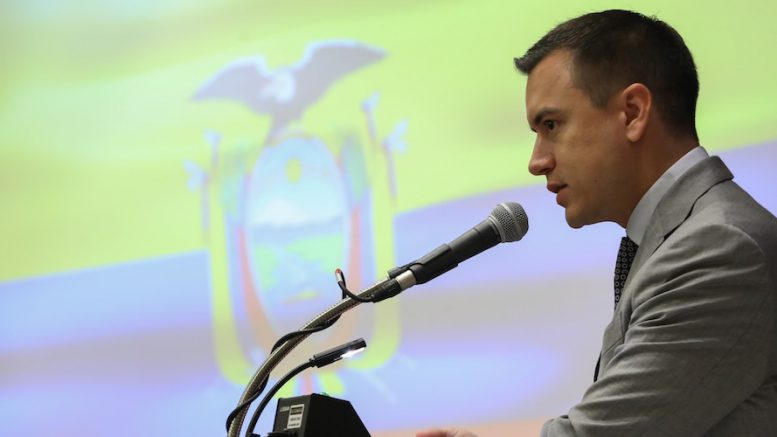Ecuador’s Energy and Mines ministry has issued new regulations governing Indigenous consultation on resource development, following a visit by the country’s President Daniel Noboa to Canada for the Prospectors and Developers Association of Canada convention last week.
The procedures manual, released on March 6, was produced in the absence of an organic law to regulate on the issue, which had become a point of concern for foreign investors in the mining sector.
The manual details the processing times for approvals for natural resources prospecting, exploration and exploitation permits when these activities take place in or around vulnerable communities and Indigenous lands that could be environmentally or culturally affected.
The manual states that prior consultation dialogues may lead to the modification of certain mining projects. However, it also highlights that the results of the prior, free and informed consultation process are not binding, which means that the government could choose to greenlight projects even without the consent of the affected communities.
This last point set off the alarms of environmental groups and on March 8, the Confederation of Indigenous Nationalities of the Ecuadorian Amazon (Cofeniae) issued a communiqué rejecting the manual and saying that it is aimed at ignoring the rights that are protected by what is known as “organic law reservation.” In their view, the manual is an attempt to impose an extractive agenda and bypass democratic controls.
The “organic law reservation” principle states that higher laws are infringed upon when a lower law is issued on a topic regulated by the constitution, as is prior consultation in this case.
“Continuing with its extractivist and neoliberal agenda, President Noboa turns our rights into a mere administrative procedure to facilitate the interests of the mining industry and speed up the approval process of mining concessions,” the statement reads.
The government, on the other hand, said the manual was created following previous statements of the Constitutional Court and Article 7 of Convention 169 of the International Labor Organization, which states that no segment of a national population has the right to veto development policies that affect an entire country.
Development projects in the country, such as Solaris Resources‘ (TSX: SLS) Warintza appear to have divided support among Indigenous groups.


Be the first to comment on "Ecuador’s new consultation rules court controversy with Indigenous groups"